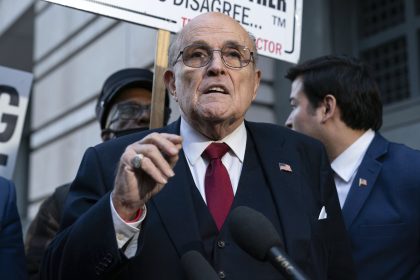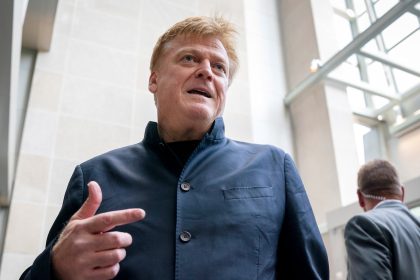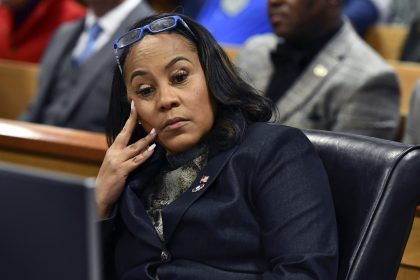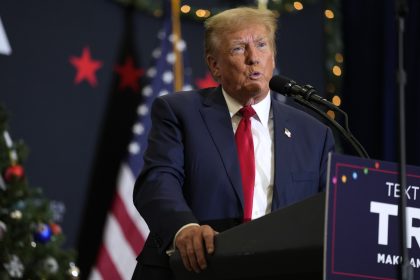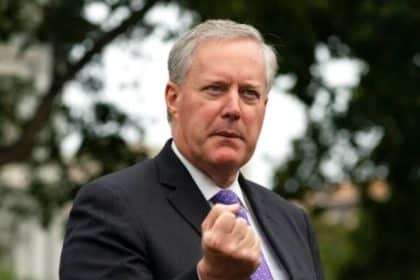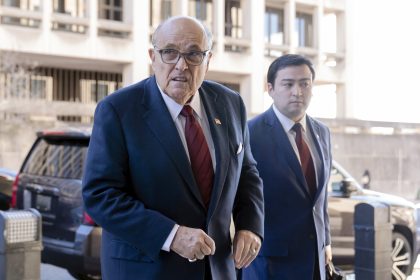Moderates Prevail Among Dem Voters in New Hampshire
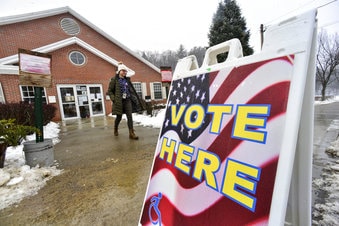
WASHINGTON — Sen. Bernie Sanders of Vermont eked out a win in New Hampshire by appealing to young, liberal college students in the state, but his victory was far from an endorsement of the party’s far left.
In fact, with more than 98% of precincts reporting as of Wednesday morning (294 of 301), the combined vote for the more moderate Democrats in the race, former South Bend Mayor Pete Buttigieg, Sen. Amy Klobuchar of Minnesota, and former Vice President Joe Biden far surpassed that of the Sanders and Sen. Elizabeth Warren of Massachusetts.
As of 12:30 p.m., the total vote for the moderates was 155,456, while the vote for the left-of-center candidates was just 103,100.
An AP VoteCast survey of 3,111 voters conducted by NORC at the University of Chicago for the Associated Press and Fox News, found a majority of New Hampshire voters described themselves as moderates, while 22% said they were very liberal, 17% somewhat liberal and 6% described themselves as conservative.
A majority of voters who considered themselves “very liberal” supported Sanders, AP VoteCast found.
The 78-year-old Vermont senator also won support from voters younger than 45 and had a slight advantage among those without a college degree.
Roughly 3 in 10 of those who deemed the U.S. economic system “very unfair” favor Sanders to oversee the world’s leading financial power.
Meanwhile Buttigieg held a slight advantage with moderate voters, though roughly a quarter of moderate voters went with Minnesota Sen. Amy Klobuchar, and about 1 in 10 went for former Vice President Joe Biden.
The survey suggests the scrum of conflicting ideologies could set up a bruising round of election contests in the weeks ahead, and also found that it is unclear whether Democrats will be able to set aside their differences and regroup ahead of the fall campaign against Trump.
The results from AP VoteCast suggest that Sanders’ younger and generally more liberal supporters distrust their fellow Democrats, a potential reflection of the Vermont senator losing the 2016 nomination to Hillary Clinton.
One factor driving this is the trouble the Iowa state party had tabulating results in last week’s caucuses, an issue that has yet to be fully resolved. The situation appears to have rattled some voters amid uncertainty about who is the Democratic front-runner.
Only 15% of New Hampshire voters said they were very confident the party’s nominating process is fair, while 45% said they were somewhat confident and 39% said they were not confident at all.
The skepticism was clearest among Sanders’ backers, with about 6 in 10 saying they had little or no confidence in the Democratic primary process. Majorities of voters for every other top Democratic contender described the primary process as fair.
Yet after months of campaigns and debates, New Hampshire voters are still settling on the ideal moderate choice. Of the state Democrats who made a decision in the days before the primary, about half went to Buttigieg and Klobuchar.
Voters see liabilities in many of the Democrats vying to run against Trump. About 6 in 10 said a candidate with strongly liberal views would have difficulty competing with the incumbent president, evidence that Sanders and Warren may be struggling to make the electability argument outside their base.
But roughly 6 in 10 also said a gay nominee — Buttigieg — would face greater hardship in the general election.
At least 6 in 10 said they would ultimately be satisfied with Buttigieg, Klobuchar, Sanders or Warren as their presidential candidate. Fewer — about half — said they would be pleased if Biden became the nominee.
As for the role gender played in Tuesday’s vote, AP VoteCast found men and women nearly equally divided in their preferences. The biggest percentage point difference between men and women’s preferences related to Sens. Klobuchar and Warren.
Three percent more women than men said they preferred Klobuchar (21% to 18%), while 4% more women than men said they preferred Warren (11% to 7%).
The most equal split among the sexes related to Sanders, who garnered the support of 26% of men and 26% of men.
Both Buttigieg and Biden did slightly better with men, with the former vice president appealing to 9% of men and 8% of women, while Buttigieg garnered the support of 26% of men and 24% of women.
Broader questions about fairness in U.S. society have been a central concern for the Democratic candidates.
An overwhelming share of New Hampshire Democrats — nearly 8 in 10 — view the economy as unfair. But among the roughly 2 in 10 who believe the economy is fair, there was an opening for a Democrat whose name was not on the ballot in New Hampshire. These voters gave a slight edge on leading the economy to Mike Bloomberg, the former New York City Mayor with a personal fortune in excess of $60 billion.
The AP VoteCast New Hampshire survey was conducted for seven days, concluding as polls closed. Interviews were conducted in English or Spanish. The survey was based on interviews with a random sample of registered voters drawn from the state voter file. The margin of sampling error for voters is estimated to be plus or minus 3.0 percentage points.
The Associated Press contributed to this report.

















